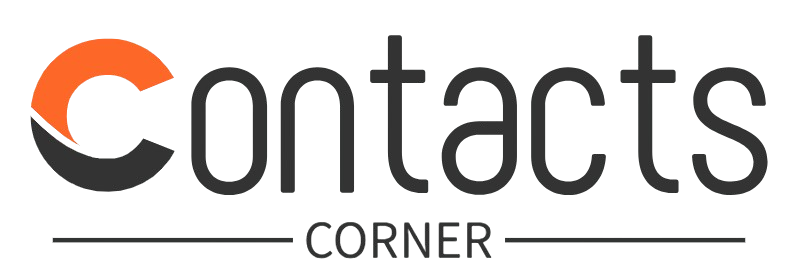The Role of Dialogue in Resolving Conflicts
Conflicts are an inevitable part of human interaction, arising from differences in opinions, interests, or values. Whether on a personal, interpersonal, or international level, conflicts can have far-reaching consequences if left unresolved. In such scenarios, dialogue plays a crucial role in facilitating communication, understanding, and ultimately, conflict resolution. This article delves into the significance of dialogue in resolving conflicts, exploring its various dimensions, applications, and implications.
The Power of Communication

At the core of conflict resolution lies effective communication through dialogue. Communication involves the exchange of information, ideas, and feelings between individuals or groups, aiming to foster mutual understanding and reach a resolution. In conflict situations, miscommunication or lack of communication can escalate tensions and perpetuate misunderstandings. Dialogue provides a platform for parties involved in a conflict to express their perspectives, listen to others, and collaboratively seek solutions.
Building Empathy and Understanding

One of the key benefits of dialogue in conflict resolution is the opportunity it provides for building empathy and understanding. Through open and honest conversations, individuals can share their stories, motivations, and underlying interests, creating a space for empathy to develop. When parties in conflict actively listen to each other’s viewpoints and acknowledge the emotions involved, they are more likely to find common ground and work towards a mutually acceptable solution.
Historical Perspectives on Dialogue in Conflict Resolution

The use of dialogue in conflict resolution is not a new concept. Throughout history, various cultures and civilizations have employed dialogue as a means to resolve disputes and maintain peace. From ancient Greek philosophical dialogues to diplomatic negotiations in medieval Europe, dialogue has been a central tool in addressing conflicts. Examining historical perspectives can provide valuable insights into the evolution of dialogue as a conflict resolution mechanism.
Contemporary Applications of Dialogue

In the modern world, dialogue continues to play a vital role in conflict resolution across different contexts. From family disputes to labor strikes, from community conflicts to international crises, dialogue is used to de-escalate tensions, find common ground, and negotiate sustainable solutions. Organizations, governments, and mediators often facilitate dialogues between conflicting parties to address underlying issues and promote reconciliation.
Case Study: South Africa’s Truth and Reconciliation Commission
One of the most notable examples of the transformative power of dialogue in conflict resolution is South Africa’s Truth and Reconciliation Commission (TRC). Established in the aftermath of apartheid, the TRC provided a platform for victims and perpetrators of human rights abuses to share their stories, seek forgiveness, and promote national healing. Through public hearings and testimonies, the TRC facilitated dialogue, promoted accountability, and laid the foundation for reconciliation in post-apartheid South Africa.
The Role of Mediation and Facilitation
In many conflict resolution processes, mediation and facilitation play a crucial role in enabling effective dialogue. Mediators, often neutral third parties, help facilitate communication between conflicting parties, identify common interests, and guide discussions towards a resolution. By creating a structured and safe environment for dialogue, mediators can bridge differences, clarify misunderstandings, and foster constructive dialogue that leads to conflict resolution.
Challenges and Controversies in Dialogue-Based Conflict Resolution
While dialogue is a powerful tool in conflict resolution, it is not without its challenges and controversies. In some cases, power imbalances, deep-seated grievances, or cultural differences can hinder effective communication and mutual understanding. Moreover, the willingness of parties to engage in dialogue, the presence of spoilers or saboteurs, and external influences can complicate the dialogue process and impede conflict resolution efforts.
Expert Opinions: The Importance of Dialogue in Conflict Resolution
Experts in the field of conflict resolution emphasize the critical role of dialogue in fostering peaceful and sustainable resolutions to conflicts. According to Dr. John Paul Lederach, a renowned peacebuilding scholar, dialogue helps create spaces for creative problem-solving, relationship-building, and the transformation of conflicts. By engaging in dialogue, parties can move beyond entrenched positions, explore underlying interests, and collaboratively design solutions that address the root causes of conflict.
Common Misconceptions about Dialogue in Conflict Resolution
Despite its proven effectiveness, dialogue in conflict resolution is often misunderstood or underestimated. Some misconceptions include the belief that dialogue is synonymous with compromise or concession, that it is a sign of weakness or capitulation, or that it only involves verbal communication. In reality, dialogue is a dynamic process that involves active listening, empathy, creativity, and a commitment to finding mutually beneficial solutions.
Conclusion
In conclusion, the role of dialogue in resolving conflicts cannot be overstated. Dialogue serves as a cornerstone of conflict resolution, providing a platform for communication, empathy, understanding, and collaboration. By engaging in open and constructive dialogue, conflicting parties can move towards reconciliation, peace, and sustainable solutions. As we navigate the complexities of conflicts in our world, let us remember the transformative power of dialogue in building bridges, fostering understanding, and resolving differences.
Long story short, dialogue is not just a conversationit is a pathway to peace.




